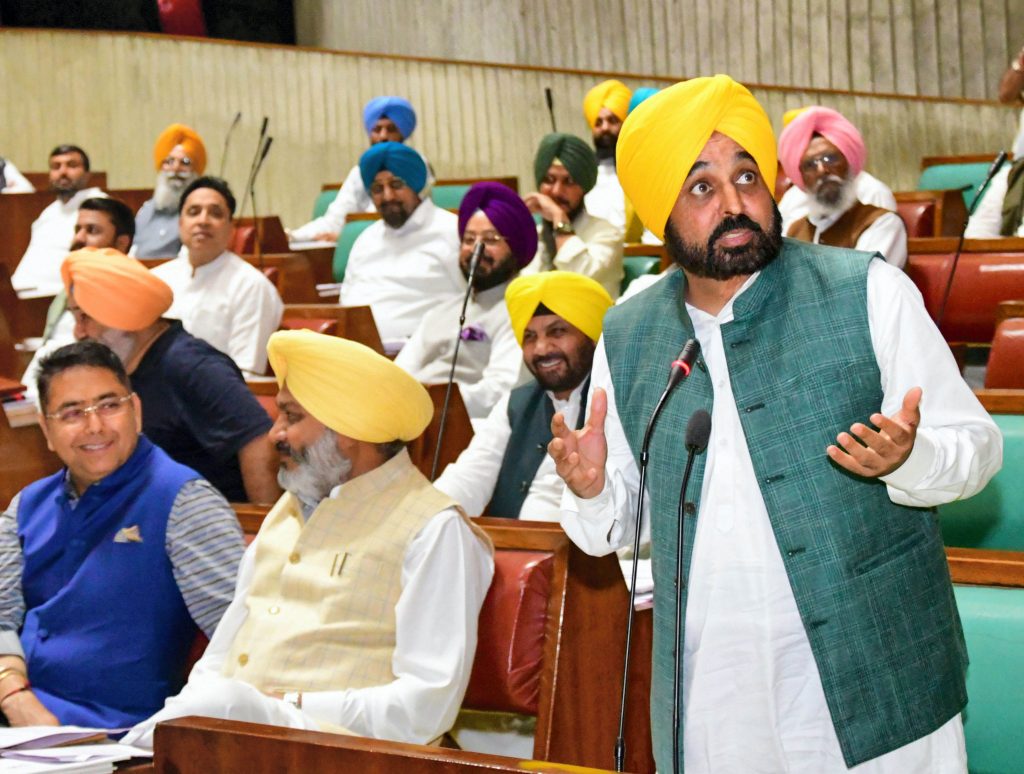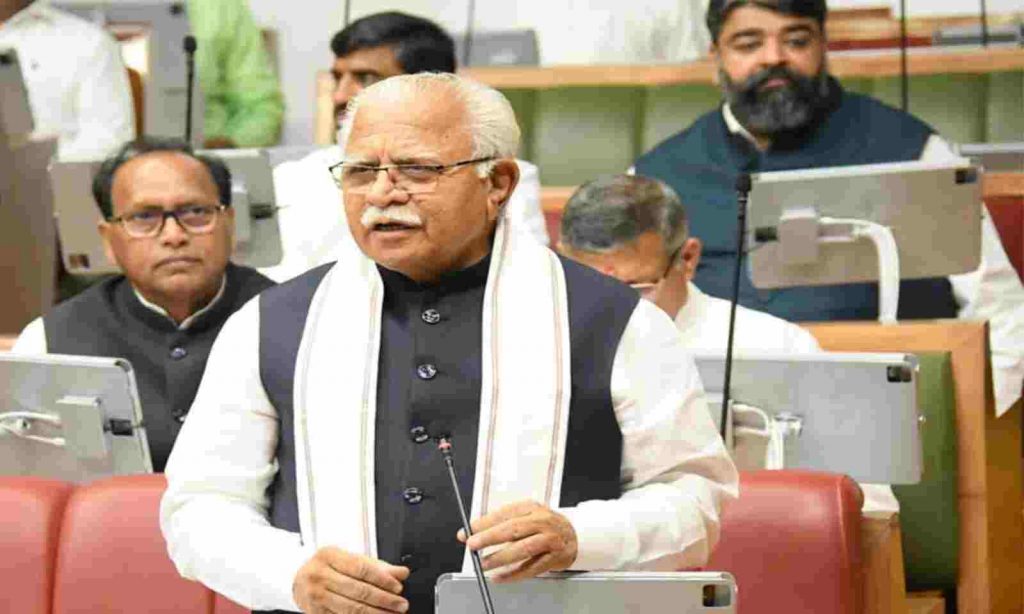The water cess bill, which was recently passed by the Himachal Pradesh assembly to mop up about Rs 4,000 crore revenue, has left Punjab and Haryana – which would be impacted with it – fuming and fretting. Both of them have rolled up their sleeves to oppose it, writes Rajesh Moudgil
The Himachal Pradesh assembly in Shimla passed the Water Cess on Hydropower Generation Bill on March 16, 2023. Five days later, the assemblies of Punjab and Haryana, which were simultaneously in progress in Chandigarh, reacted resentfully and passed resolutions to resist it.
The new law would be applicable to the existing 172 power projects and future projects in the hill state.
The new law would not affect the people of the state and it was brought to enable the Himachal Pradesh Congress government to raise its resources to resolve its financial hardships. The law is expected to generate about Rs 4,000 crore, deputy chief minister Mukesh Agnihotri told the House. The state government also planned to hold dialogue with the hydropower companies and power projects of less than 5MW capacity, which if run by Himachal Pradesh residents, would be eligible for relief.
Leader of Opposition Jairam Thakur said that the BJP supported the Bill and the government had to find out such new ways to generate resources. He, however, said that it should also be ensured that people of the hill state were not burdened.
Punjab fumes
The Punjab assembly unanimously adopted a resolution – in the absence of the Congress – declaring the water cess proposed to be levied by neighbouring Himachal Pradesh on hydel power generated in the hill state as “illegal”, and sought its immediate withdrawal. Terming it to be in violation of the Inter-State River Water Disputes Act, 1956, the assembly recommended to the state government to request the Centre to prevail upon the Himachal Pradesh government to withdraw the move. Aam Aadmi Party (AAP) in power in Punjab.

Lambasting the said move of the newly-elected Congress government in the neighbouring Himachal Pradesh and questioning the absence of Congress legislators, the Punjab water resources minister Gurmeet Singh Meet Hayer termed it as a “senseless move’’. He also took a dig at the Congress members saying that they had run away as they knew that this resolution was coming up against the Congress government in Himachal Pradesh. While the chief minister Bhagwant Mann also flayed Himachal Pradesh’s move, the Shiromani Akali Dal (SAD) members also backed the resolution.
Punjab’s resentment was obvious as the Bhakra Beas Management Board (BBMB) and the Punjab State Power Corporation Limited’s (PSPCL) hydro projects in the Himachal Pradesh would also come under the purview of this law. Hence the resolution in the Punjab assembly read that the House was concerned about the said move to impose water cess on the hydro power projects for non-consumptive use of water for power generation. The water resources of the hill state were now the government property while any proprietary, riparian or usage rights with any individual, group, company, corporation, society or community were deemed to have been terminated.
Stating that the House acknowledged and recognised the right of Punjab over the use of waters flowing into the state for all purposes, the resolution said that all the BBMB projects which had since been constructed with the investment made by the state of Punjab largely happened to be situated in Himachal Pradesh.
It further said that with the imposition of cess, the Himachal Pradesh government was trying to put avoidable tax burden on Punjab as it was evident from the objective of the ordinance. With this levy, there is an additional financial burden of Rs 1,200 crore annually of which a major burden was likely to be on Punjab, it said and added that this was not only an infringement on the exclusive rights of the state over its natural resources but also result in additional financial burden for generation of power resulting in the higher cost of power generation.
The resolution further held that the water cess by Himachal Pradesh was against provisions of the Inter State River Water Disputes Act, 1956 while the Punjab through the Bhakra Beas Management Projects was already liberal in releasing 7.19% of electricity of the composite share of Punjab.
The resolution said that the House very strongly and unanimously resolved that this levy of water cess imposed by Himachal Pradesh government was illegal and, therefore, the same should be withdrawn.
This House recommends to the state government to request the government of India to prevail upon the government of Himachal Pradesh to withdraw the ordinance as it violates a Central Act, the Inter State River Water Disputes Act, 1956, it read.
Haryana too decries the move
Haryana chief minister Manohar Lal Khattar also opposed the ordinance passed by the Himachal Pradesh government to impose the said water cess for non-consumptive use of water for power generation and said that it was illegal and not binding on the state of Haryana and therefore the same should be withdrawn immediately by the Himachal government.
Haryana has a BJP-Jannayak Janta Party (JJP) coalition government.

The resolution which was moved by the chief minister on the last day of the budget session, opposing the said move, was unanimously supported and passed by the House. The House also urged the Central government to prevail upon the Himachal Pradesh government to withdraw the Ordinance as the same was in violation of the Central Act – Inter State Water Disputes Act, 1956.
Khattar told the House that with this new levy there would be an additional financial burden amounting to Rs 1,200 crore per annum on partner states out of which about Rs 336 crore would be burden on the state of Haryana. This new levy was not only an infringement of the exclusive rights of the state over its natural resources but would also result in additional financial burden for generation of power resulting in the higher cost of generation of electricity, said the chief minister.
Himachal sticks to stand
Meanwhile, responding to the Punjab assembly’s resolution declaring the water cess Bill of Himachal Pradesh as illegal, its deputy chief minister Mukesh Agnihotri has said that the Inter-State River Water Disputes Act, 1956 did not prohibit the state from imposing the water cess on the power generation for the use of water and there was no bar on the imposition of water cess under Section 7 of this Act. He also said that the water cess had already been imposed by various states like Uttarakhand and Jammu and Kashmir.
Their stances notwithstanding, a new row between the three neighbouring states has just begun.












